Galvanic Isolator
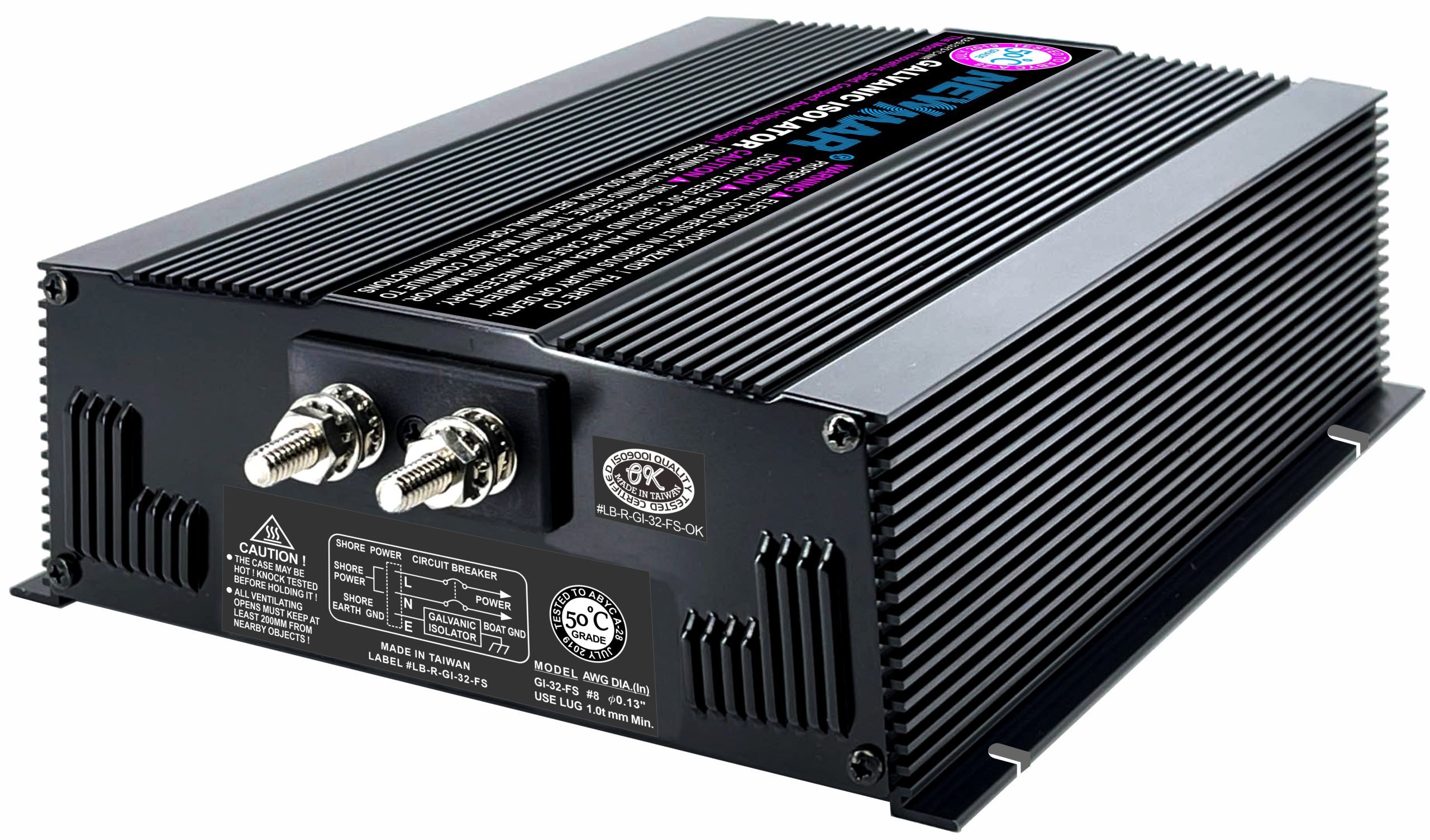
Newmar’s latest galvanic isolator meets the latest ABYC A-28 2019 including being failsafe. This new design can meet the strictest temperature and current tests to create a robust solution for galvanic protection.
KEY FEATURES
- Protects against corrosion
- Maintains a safe environment
- Certified to UL1500 standard for Ignition Protection
- Tested to 50°C ambient temperature
- The fail-safe feature ensures ground maintenance
- Connection in the event of isolator failure
Request more Information
SPECIFICATIONS – GALVANIC ISOLATOR
| Galvanic Isolator 30 A | Galvanic Isolator 60 A | |
| Part Number | 395-3030-FS | 395-3060-FS |
| Shore Power Voltage | 115–230 V | 115–230 V |
| Maximum Short Circuit | 5000 Amps | 5000 Amps |
| Stray Current Protection | Up to 1.4 Vdc | Up to 1.4 Vdc |
| Dimensions (LxWxH) | 200 x 189 x 68.5 mm | 230 x 189 x 68.5 mm |
DOWNLOADS
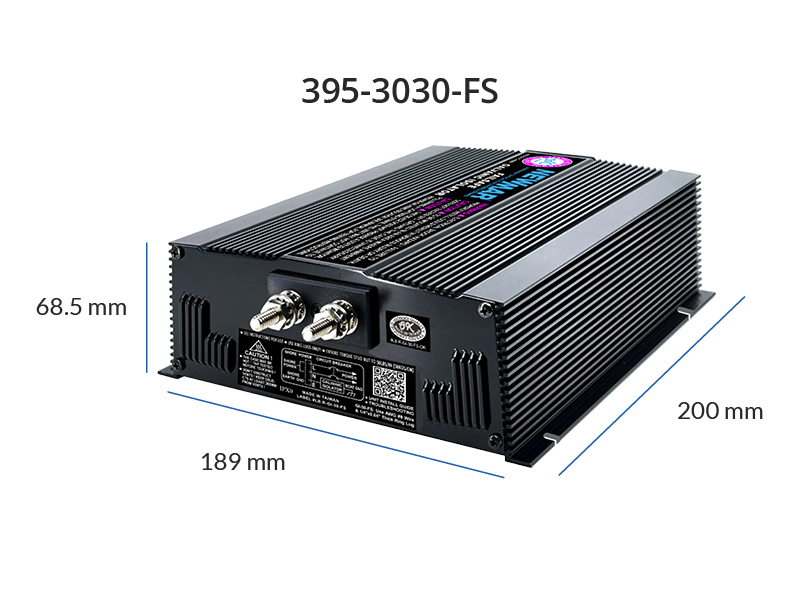
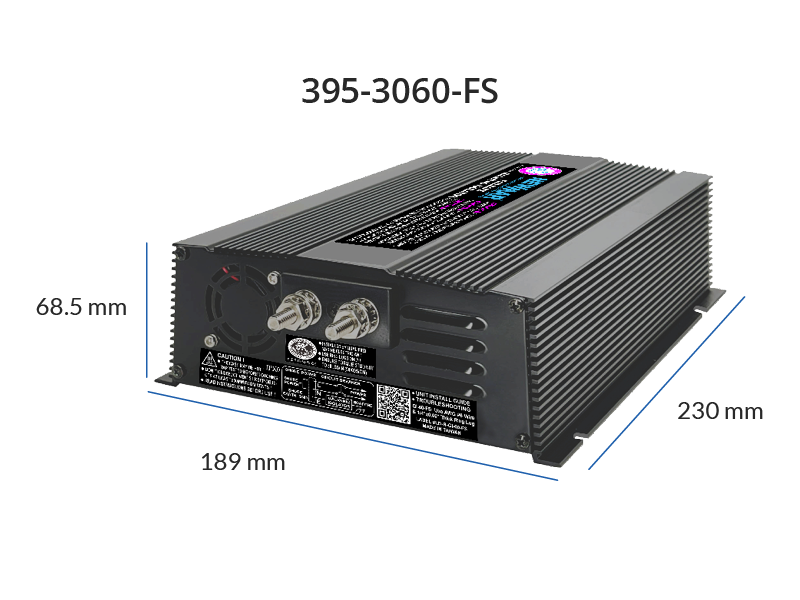
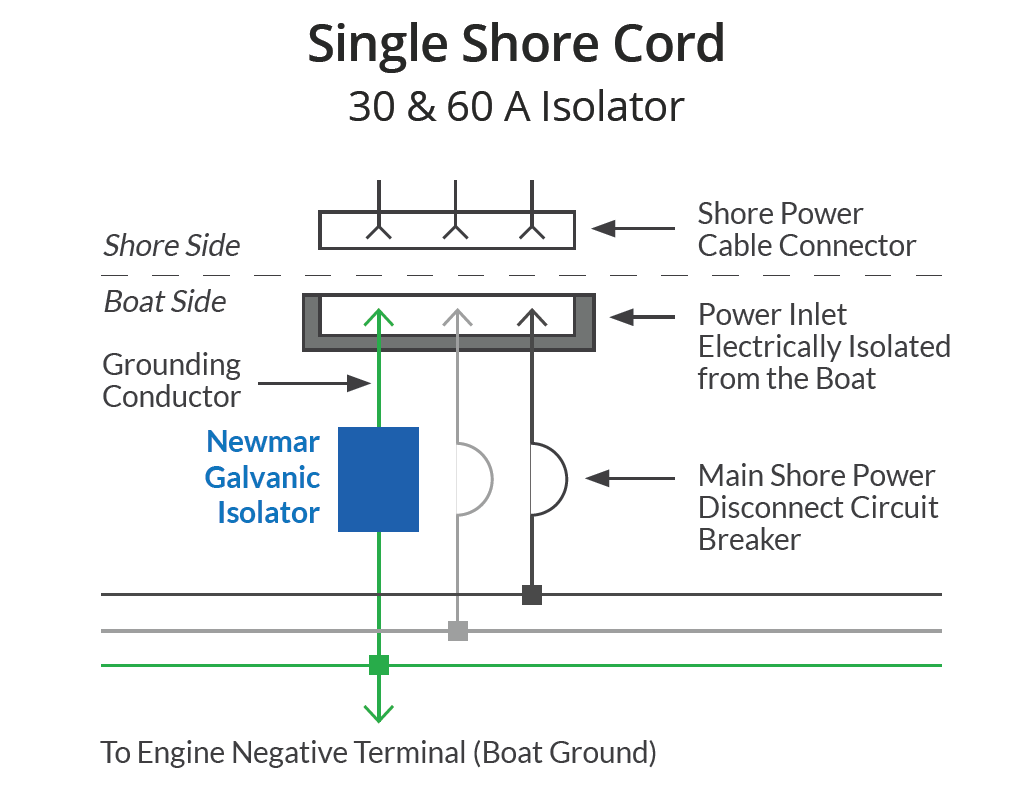
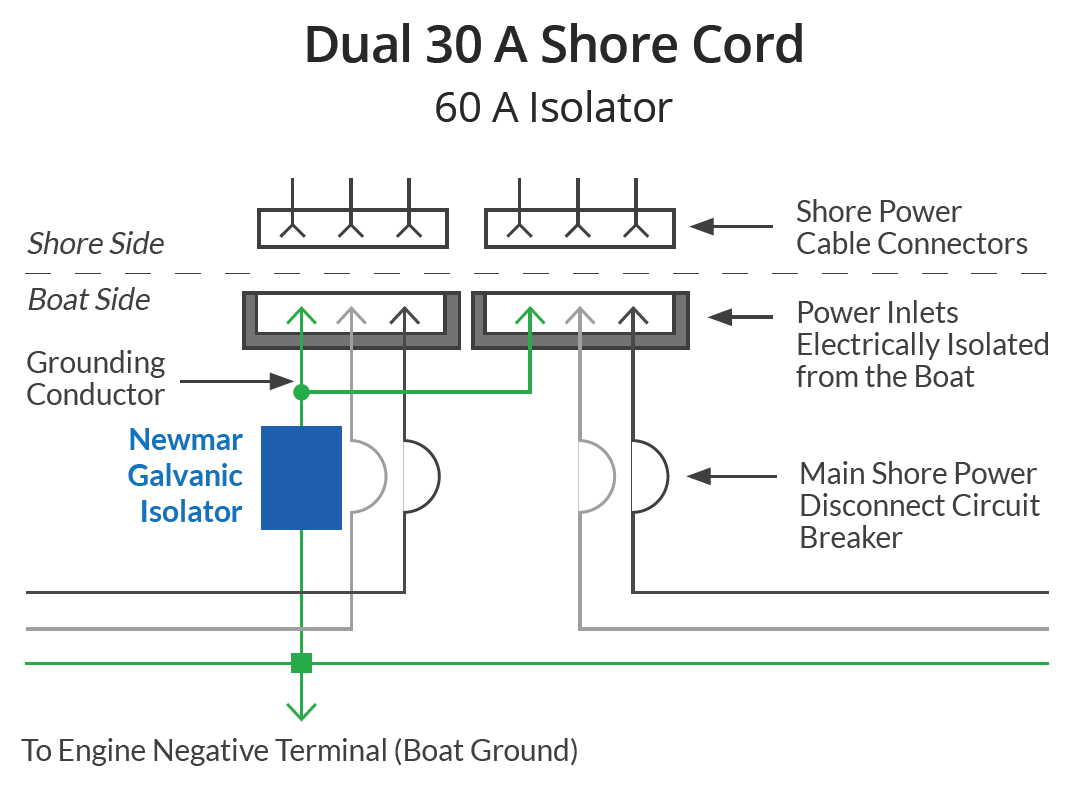
FREQUENTLY ASKED QUESTIONS – GALVANIC ISOLATOR
What is a Galvanic Isolator, and what does it do?
A Galvanic Isolator is an electrical device designed to protect boats and marine equipment against galvanic corrosion. It isolates the AC grounding system from the DC bonding system, preventing harmful electrical currents from flowing through the water and corroding underwater metals.
How does a Galvanic Isolator protect against corrosion?
By breaking the electrical connection between the boat’s AC shore power ground and the DC grounding system, the Galvanic Isolator inhibits the flow of galvanic currents that cause corrosion. It ensures that only minimal, safe levels of current are allowed to pass, safeguarding your vessel’s metal components.
Is the Galvanic Isolator compatible with all boat types?
Yes, Galvanic Isolators are designed to be compatible with a wide range of boat types, including powerboats and sailboats. They can be installed in both metal and non-metal hulls, making them a versatile solution for marine corrosion protection.
Is professional installation required for a Galvanic Isolator?
While it is recommended to have a qualified marine electrician install the Galvanic Isolator to ensure proper setup and adherence to safety standards, some isolators are designed for straightforward DIY installation. Please ensure that the Galvanic Isolator is installed right after the receptacle.
Does it matter which terminal goes to shore ground and which terminal goes to boat ground?
No, it does not matter which terminal goes to shore ground and which terminal goes to boat ground.
Do I need to ground the Galvanic Isolator case?
No, you do not need to ground the Galvanic Isolator case.
Is the built-in fan current-induced or thermal-induced?
The fan is triggered by the current flow and is not dependent on temperature. The 60-amp model’s fan only operates when there is a fault or when ac current appears in the ground path which exceeds 35 amps sustained. Under normal operation, the fan will not spin.
What certifications or standards should I look for when choosing a Galvanic Isolator?
Look for Galvanic Isolators that are certified to meet industry standards, such as ABYC (American Boat and Yacht Council) and UL1500 (Underwriters Laboratories’ Marine Ignition Protection). These certifications ensure the isolator’s reliability and performance.
